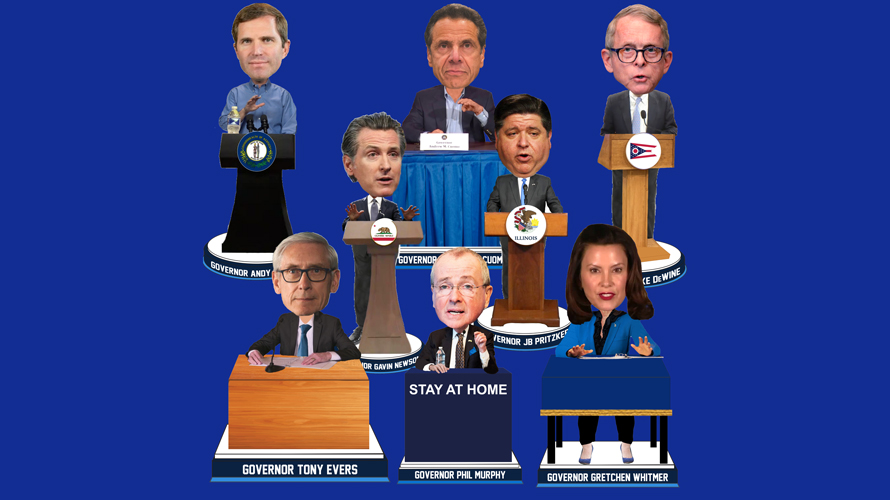March 14 was a tough day for Phil Sklar. Since 2014, his life’s work has been running the National Bobblehead Hall of Fame and Museum, located in Milwaukee, which houses some 6,500 culturally significant bobbleheads in addition to producing and selling its own.
But by mid-March, Sklar, realizing that the social distancing mandated by the novel coronavirus crisis was untenable in his small institution, made the decision to close his doors.
Then he had an idea. Having watched the soaring popularity of Dr. Anthony Fauci, longtime director of the National Institute of Allergy and Infectious Diseases and the White House’s point man on Covid-19, Sklar figured that maybe the 79-year-old physician would make a good bobblehead.
“We were still coming out with new bobbleheads we had planned,” Sklar said, “but we started to see Dr. Fauci donuts and socks and [thought] he deserves the highest honor of a bobblehead. We thought, ‘Let’s put this out there.’”
Sklar did put it out there, taking the added measure of donating $5 from every doll sold to the Protect the Heroes campaign, a national charity set up to support healthcare workers. Sklar figured that sales of Fauci bobbleheads (the 7-inch tall figure sells for $25) would be “OK,” if not stellar. But as things turned out, Sklar lowballed it—by a lot. To date, the museum has taken orders for upward of 34,000 Fauci bobbleheads.
Then Sklar took the only logical next step: He began making bobbleheads of the state governors who’ve been in the news for their Covid-19 fighting efforts.
Last week, he added New Jersey Gov. Phil Murphy to a lineup that already includes New York Gov. Andrew Cuomo, California Gov. Gavin Newsom and Ohio Gov. Mike DeWine. Murphy’s doll sits at a podium bearing a sign that reads “Stay at home.” (Sales of these dolls also go to benefit Protect the Heroes.)

If these were ordinary times, bobblehead season would be in full swing right now. That’s because baseball teams, which have long used the dolls with the oversized heads as gate giveaways, have come to depend on their drawing power. But baseball’s been suspended, along with the playing seasons of most other major sports. So, are Sklar’s sales an indication that sports fans are desperate for any new bobbleheads? Perhaps.
More likely, however, it’s simply an indication of what brands consider marketing 101. These cheap, crowd-pleasing dolls are a low-tech giveaway that has delivered results for decades.
“Bobbleheads have been used since the early 1960s as a branding and marketing tool, whether it’s in sports teams or [companies like] KFC, with a bobblehead of Colonel Sanders,” said Sklar, who rattled off a long list of brands that have raised awareness by either selling their own bobbleheads or licensing them to other companies that do.
Some of these include Progressive Corporation, which has issued two iterations of its fictitious spokesperson Flo, and the Big Boy Restaurants burger chain, which sells a $14.99 bobblehead of its checkered overall-wearing mascot on its website. McDonald’s has long used bobbleheads as Happy Meal premiums for everything from Star Wars characters to its own McDonaldland characters. The Aflac Duck, the Michelin Man, the Burger King, Bazooka Joe all have appeared as bobbleheads at one time or another.
And while Covid-19 has shut down much of the economy, bobbleheads have continued to appear as though nothing were amiss. Sports merchandise giant Foco recently released a Day of the Dead bobblehead series themed to baseball teams including the New York Yankees and Houston Astros. Last week, the company also issued a bobblehead of Jacksonville Jaguars quarterback Gardner Minshew kneeling beside some jaguars, a doll the company calls Jaguar King in an obvious riff on the popular Netflix series Tiger King.
https://www.adweek.com/brand-marketing/the-hidden-power-of-bobblehead-marketing-bringing-dr-fauci-to-a-desk-near-you/

